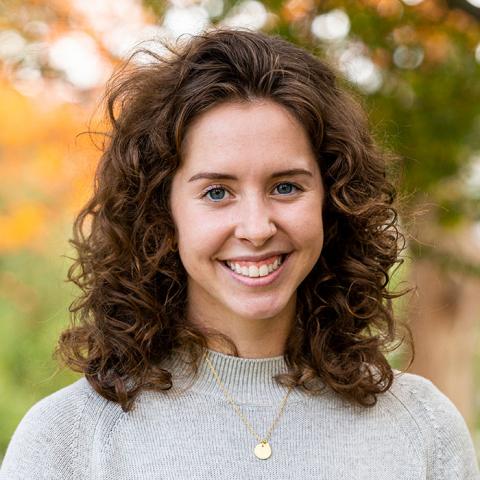Summer Centered: Helping Archive Guatemalan Political Memory

The Grupo de Apoyo Mutuo's three interns this summer are (from left to right) Naren Roy, Emma Schwartz, and Alexa Horkava.
Details
Emma Schwartz ’24, Naren Roy ’23, and Alexa Horkava ’22 are working with the Grupo de Apoyo Mutuo’s digital archives via a CPGC-sponsored fellowship in the Haverford library this summer.
This summer, Emma Schwartz ’24, Naren Roy ’23, and Alexa Horkava ’22 are fellows with the Grupo de Apoyo Mutuo, or GAM, a human rights organization in Guatemala that works to help the families of people killed or disappeared during the Guatemalan Civil War. The three students, sponsored by the Center for Peace Global Citizenship, are building upon years of student and staff work.
Haverford College Libraries began work with the GAM in 2016, initially working to digitize their physical collection of case files of forced disappearance and provide access to them in a digital archive. Their collection contains almost 3,300 case files that have been repeatedly endangered by government seizure, arson, and a lack of proper storage facilities. While all documents were digitized by 2019, the library staff and student fellows continue maintenance and sustainability work with the archive.
“While archival maintenance doesn't sound as exciting as archival creation, providing continual and secure access to the sensitive materials in case files is equally valuable work,” said Social Science Librarian Brie Gettleson, the subject area expert for student research on the project and the primary contact between the GAM and the Haverford Libraries. “Recently, the Public Ministry and the Office of the Human Rights Prosecutor in Guatemala have requested access to the digital archive, hoping to continue to build evidence for human rights trials. Additionally, human rights archives in Guatemala remain under threat, as other key collections have been removed from public access or intentionally destroyed.”
The archive’s many functions have allowed the three interns to do a wide variety of work—rom finding ways to present the archive's information and data to a more general audience to digitization and research.
Schwartz, a prospective comparative literature or anthropology major, is working on a timeline of Indigenous resistance against colonialism, American imperialism, and state violence in Guatemala.
“On these web pages, I am working on connecting these individual stories to their political contexts of anti-imperialist, anti-colonial, anti-capitalist ideology within movements of resistance during the Guatemalan Civil War,” she said.
Horkava, an economics, political science, and mathematics triple major, is doing a data-based project. Building off the spreadsheet and statistics created by past interns, Horkava is gathering and analyzing data about groups of interest like students and agricultural workers that disappeared during the war. For example, finding the percentage of disappeared people who were Indigenous.
“Through this timeline, I hope to document Indigenous demands and desires for a decolonized world,” said Horkava, “and show some of the ways that decolonization actively takes place from self-defense to memory keeping.”
Roy is independently researching two subjects within the archives this summer. The anthropology major, who also has a visual studies minor and Latin American, Iberian and Latinx studies concentration, has explored how forced disappearances and violence compared between urban and rural areas and the leadership of Indigenous women activists in speaking out against the human rights abuses.
“Having learned the context of and having engaged with the Guatemalan internal conflict in a political science course with Professor Anita Isaacs, I was able to revisit it from an anthropological perspective given the tools from ‘Anthropology of Human Rights’ with Brie Gettleson,” said Roy. “I began to wonder much more about how transparency following atrocity, collective organizing, and bearing witness in the face of difficult politics really work in action. This internship has given me an incredible entry point into the role of archival work in the human rights sphere.”
In addition to giving students like Schwartz, Horkava, and Roy the experience with archives and research, the partnership with the GAM has also allowed students and librarians to travel to Guatemala and for partners at the GAM to visit Haverford.
"It became clear over the years of work that the partnership was as important a part of this project as the collection," said Gettleson. "We are thankful to our colleagues at the Center for Peace and Global Citizenship for supporting current summer research and previous summer travel for students interested in working with the archive. Our partners at the GAM enjoy working closely with Haverford students and hope to create connections between our students and students enrolled in Guatemalan universities in the near future. Anyone who is interested in learning more about this project is invited to be in touch!"
“Summer Centered” is a series exploring our students’ campus-funded summer work.




